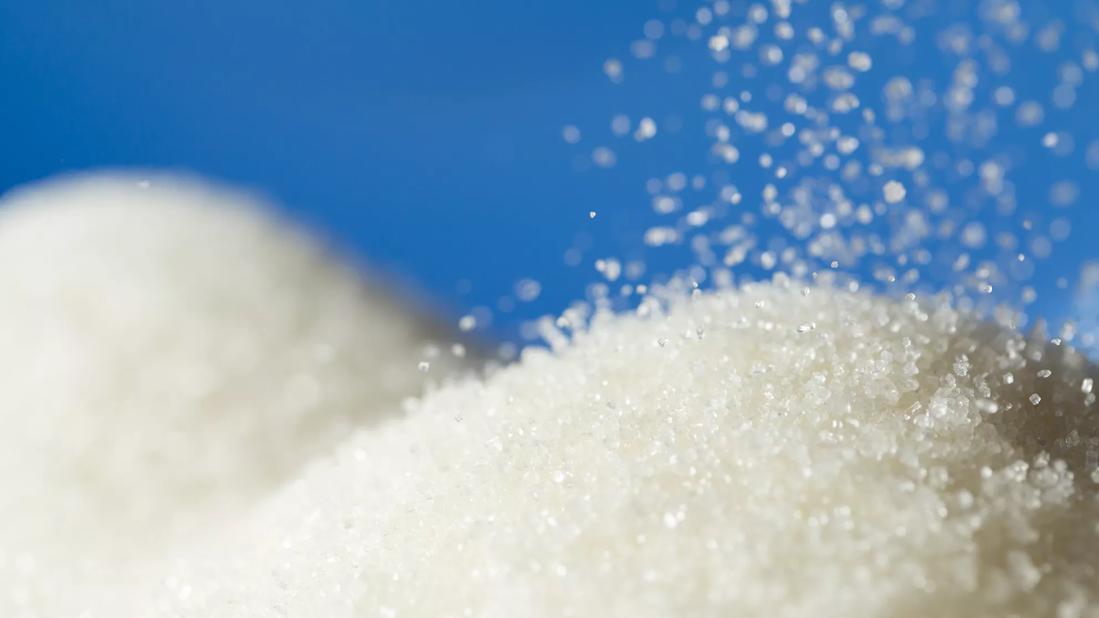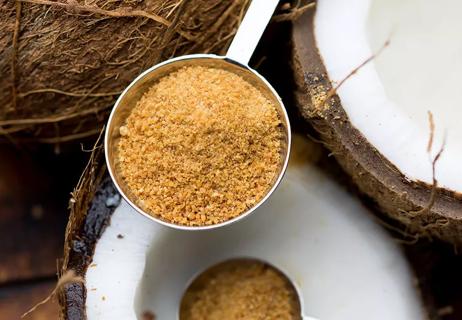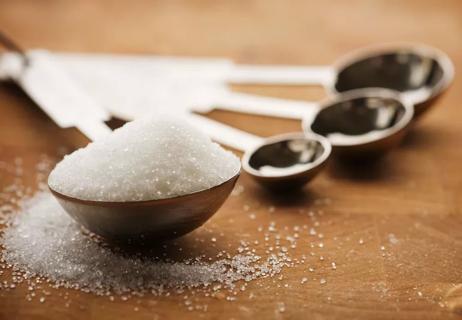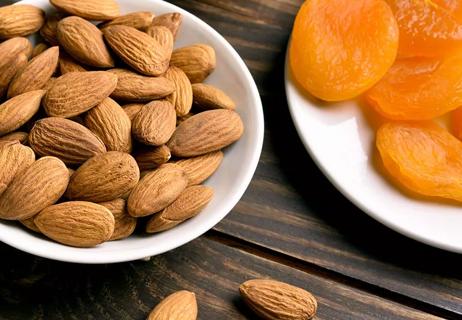Often labeled as ‘diabetes-friendly’ or ‘calorie-free,’ these sugar substitutes warrant caution

If you’re conscious of your sugar intake (perhaps especially if you have diabetes), you’re likely a pro at reading food labels. But how much do you know about products that use sugar alcohols as a sweetener?
Advertisement
Cleveland Clinic is a non-profit academic medical center. Advertising on our site helps support our mission. We do not endorse non-Cleveland Clinic products or services. Policy
“Sugar alcohols may have a slight influence on your blood sugars, but overall, they’ve long been thought to be safe to include as part of a balanced diet,” says registered dietitian Tegan Bissell, RD, LD. “New research shows that that might not be as true as we once thought, though.”
We talked with Bissell and physician-scientist Stanley Hazen, MD, PhD, to understand what sugar alcohols are and the potential risks that are coming to light.
The term itself is actually misleading: There is no ethanol in sugar alcohols, and there’s no table sugar either. “Sugar alcohols are a type of carbohydrate and have a chemical structure that’s similar to sugar,” Bissell clarifies.
Though they occur naturally in some foods and are made by your body, the levels present are vanishingly small. Most sugar alcohols found in packaged foods are manmade and manufactured. Food manufacturers use these sugar alcohols to sweeten their products while reducing calories.
“Sugar alcohols stimulate the tongue’s sweet taste buds, which adds flavor without extra sugar or calories,” Bissell explains. “Food companies use them so they can market their foods as ‘low-carb,’ ‘sugar-free’ or ‘diabetes-friendly’ without sacrificing taste.”
Advertisement
Because of this, they’re often found in products, again, that are labeled “diabetes-friendly” or “keto-friendly.” Common sugar alcohols include:
More information on those individual ingredients in a moment. But for now, let’s delve a little deeper into what sugar alcohols do, on the whole.
Sugar alcohols are sometimes referred to as artificial sweeteners, a category that includes aspartame and saccharin, but they’re actually not the same thing. Though they’re both manufactured, they differ in a couple of key ways.
“Sugar alcohols have very few calories, and they’re not as sweet as sugar,” Bissell notes. “Artificial sweeteners, on the other hand, are chemicals that provide an intense level of sweetness and no calories.”
You can also buy artificial sweeteners as a sugar substitute for baking and cooking and find them in packets at restaurants and coffee shops. Sugar alcohols are commonly used in processed foods.
Sugar is 100% natural, exclusively coming from fruits, plants, vegetables and milk. Though some sugar alcohols come from fruits and vegetables, the ones used in processed foods are artificially produced.
Sugar alcohols have some advantages over regular sugar, including:
Sounds great, right? Not so fast. There’s another key difference between sugar and sugar alcohols.
“Your body can easily digest sugar and use it for energy,” Bissell explains. “But it can’t absorb or fully digest sugar alcohols.” As it turns out, that can cause some problems.
Advertisement
Sugar alcohols have long been considered a safe addition to your diet — in moderation. Studies have shown 10 to 15 grams a day of sugar alcohols are safe. But many processed foods containing sugar alcohols have levels far greater than that threshold. And new research is showing that elevated levels of sugar alcohols can be dangerous to your health.
Dr. Hazen and his team have conducted studies on the effects of both xylitol and erythritol. And the findings are highly concerning.
Circulating levels of both xylitol and erythritol have been shown to be associated with an increased risk for “major adverse cardiovascular events.” That includes a heightened risk for heart attack, stroke and even death.
Now, association doesn’t equal causation. But studies with blood, platelets and non-human models all point to erythritol and xylitol enhancing blood clotting risks (what happens in a heart attack or stroke). The concern is that eating foods with these sugar alcohols may put you at a higher risk for heart attack and stroke.
High levels of xylitol and erythritol can send your platelets into overdrive. Platelets are the components in your blood that allow it to clot. Clotting is a good thing if you have an open wound. It keeps you from bleeding out. But when your blood clots inside your body, it’s a recipe for a medical emergency — like a heart attack or stroke.
Advertisement
It doesn’t take much either. For example, just one scoop of keto-friendly ice cream contains up to 30 grams of xylitol. Dr. Hazen’s research suggests that’s enough to agitate your platelets and make them more likely to form clots. And the increased risk lasts about four to six hours (or until you eat more xylitol-containing foods.)
When you eat foods containing erythritol, the risk can remain for several days.
“More research needs to be done to understand what the effects are of other sugar alcohols. But based on what we see from xylitol and erythritol, it’s fair to say that sugar alcohols should warrant caution,” Dr. Hazen states. “These compounds are in foods that are typically marketed to people with diabetes, who already have an increased risk for major heart events. And the sugar alcohols in their diets may inadvertently be adding to that risk.”
Your body can’t fully digest sugar alcohols, which can lead to some unpleasant GI symptoms when eaten in larger quantities — and they usually happen pretty soon after you eat them.
In a 2006 British study, researchers gave participants doses of sugar or one of two types of sugar alcohols (xylitol and erythritol). Those who took xylitol reported bloating, gas, upset stomach and diarrhea. Erythritol appeared to have milder effects on the stomach, only increasing nausea and gas when consumed in large doses.
Advertisement
“If you eat foods with sugar alcohols several times a day, you could wind up with some tummy troubles on top of raising your risk for heart conditions in the long term,” warns Bissell. “If you notice this happening, use caution or find another sweetener option.”
In everyday terms, this means that sugar alcohols may make you poop. Again, this is because your stomach can’t absorb sugar alcohols, which can cause them to linger in your intestines and ferment.
This effect is most common in children and in adults who:
Sugar alcohols are low in calories and carbs, but, depending on the type, aren’t free of them. So, it’s still possible to gain weight when you’re eating foods that contain sugar alcohols, especially if you eat them in excess.
A study of college students found that consuming high levels of dietary erythritol were associated with weight gain — specifically, increased belly fat — throughout their freshman year.
“Just as sugar lurks behind different terms on food labels, sugar alcohols also have many names,” Bissell clarifies. When you see one of these products on a label, here’s what you’re getting:
But frustratingly, you could be eating foods made with sugar alcohols without even knowing it — even if you’re reading those labels closely. The U.S. Food and Drug Administration (FDA) doesn’t require food companies to list sugar alcohols on their ingredient lists.
Aside from reading the ingredients on food labels, Bissell says you can identify products that may contain sugar alcohols by looking for processed foods that say they’re:
Another dead giveaway that a product includes sugar alcohols is a label that says, “Excessive consumption can cause a laxative effect.” The FDA requires this language on any product that contains added sorbitol or mannitol.
Sugar alcohols can help reduce your carbohydrate intake, but the risks may be reason enough to cut their intake or cut them out completely. Researchers don’t yet know their full impact on your health. As with most foods, it’s best to consume products with sugar and sugar alcohols only in moderation and to focus on whole foods instead.
Learn more about our editorial process.
Advertisement

A high-sugar diet can trigger a chain reaction that may raise your risk

You can reduce how much added sugar you consume by tracking what you eat, reading labels and limiting portions of the sweet stuff

A high intake of sugar can cause an increase in ‘bad’ cholesterol and a decrease in ‘good’ cholesterol

There is an indirect link between the sweet substance and the condition

It’s touted as a healthier alternative to cane sugar, but basically, well ... it’s still just sugar

Sugary foods don’t always taste sweet, and they may not say ‘sugar’ on the label

Don’t skip meals or go ‘cold turkey’ — eat a balanced diet and talk to your doctor instead

Fuel your body with healthy options that combine fiber-rich carbs, lean protein and healthy fats

Wearing a scarf, adjusting your outdoor activities and following your asthma treatment plan can help limit breathing problems

Your diet in the weeks, days and hours ahead of your race can power you to the finish line

When someone guilt trips you, they’re using emotionally manipulative behavior to try to get you to act a certain way